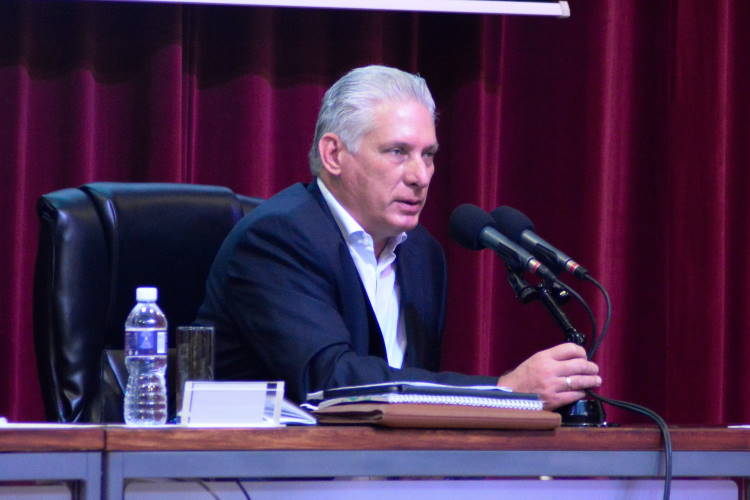MONTANA, United States. — The Oxford Dictionary defines the whataboutism (it could be translated into Spanish as ¿and what about?) such as the technique of responding to a difficult accusation or question with a counter accusation or by raising a different issue. Similar to the “irrelevant evidence fallacy,” which seeks to answer one question by answering another, whataboutism seeks to answer a question by asking another question. Here I focus on the use of whataboutism to subvert democratic debate.
These rhetorical tricks are nothing new. Let us remember, for example, that Emperor Ming, faced with the dangerous situation of a river overflowing, did not think of damming it, but instead of a semantic solution, he changed the name of the river from “The Wild” to “The Pacific”. Problem solved.
The strategy behind whataboutism is of long standing, and is considered by rhetoricians to be a variant of the logical fallacy of you what (you too), where an attempt is made to discredit the opponent’s position by accusing him of hypocrisy instead of refuting the accusation. The whataboutism goes beyond you what establishing an equivalence between two or more unrelated actions, thus smearing the opponent as deceitful.
The origin of whataboutism is associated with Soviet propaganda. During the Cold War, when the Soviet Union was criticized, the Soviet response was often in the form of “What about…?” claiming atrocities of which the western world was guilty. According to the Russian chess player and political activist Garry Kasparov, the term “whataboutism” was coined to describe the frequent use of a rhetorical diversion by Soviet apologists and dictators who countered accusations of their oppression, invoking slavery, racism, etc. from United States.
The technique was also assimilated by the Cuban regime, which, for example, often responds to criticism with “And what about the US blockade?”.
Critics of former President Trump point to the frequent use of whataboutism by the President as a way to deflect criticism; hence the renewed interest in this rhetorical device. The revival of whataboutism in the United States it is unfortunate because the “what about” defense is associated with a moral relativism typical of illiberal regimes. Even more unfortunate is the use of whataboutism by journalists who apparently are not aware that this rhetorical device compromises their journalistic objectivity.
The whataboutism it degrades the level of discourse from rational criticism to complaint. It is natural to find ways to whataboutism in many arguments. But notice how Vladimir Putin, Raúl Castro, Nicolás Maduro and other heads of illiberal regimes use the whataboutism in response to any criticism.
Our society faces the challenge that our democratic institutions were built with very different and limited information technologies. Then, as today, opinions differed, but most discussions were genuine debates conducted within agreed rhetorical parameters. Today there are no such parameters and the whataboutism it is used as a tactic to subvert genuine deliberation. It seems that we are engaged in a national misological (disregard for reasoning) practice in which the search for truth has been abandoned.
Unlike the people of other nations, Americans and our country’s founders were skilled at thoughtful debate and compromise. Other countries, which have not learned to govern in a representative way, have not had a democratic experience to inform and guide their political class. I had this in mind when I tried to collect eighty essays on my understanding of what it means to be free in my book freedom for rookies.
As Americans, we seem to be unlearning the give and take of representative democracy and losing our appreciation of pluralism. For me, the real problem of the prevalence of whataboutism in our national discourse is that it distracts from the national conversation and prevents a true democratic debate.
Democracy has always been loud and raucous, but if we follow the rules, the democratic consensus eventually emerges. By substituting debate for whataboutism Something essential to our democracy is missing.
OPINION ARTICLE
The opinions expressed in this article are the sole responsibility of the issuer and do not necessarily represent the opinion of CubaNet.
Receive information from CubaNet on your cell phone through WhatsApp. Send us a message with the word “CUBA” on the phone +1 (786) 316-2072, You can also subscribe to our electronic newsletter by giving click here.















